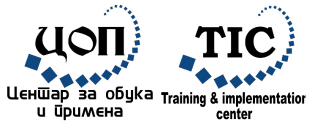Since its advent as a modern therapeutic intervention, originated a century ago by René-Maurice Gattefossé, aromatherapy has evolved to embrace several overlapping approaches to the remedial use of essential oils. Each approach developed within a specific cultural context and stressed different methods of essential oil application. In France, an emphasis on the oral and rectal use of essential oils established aromatherapy as a form of médecines douces (natural medicine), the practice of which was pioneered by Dr Jean Valnet; while in Britain, the traditional use of volatile extracts by herbalists re-emerged in the form of their predominantly dermal and respiratory use by students of Austrian-born nurse Marguerite Maury, paving the way for holistic aromatherapy. These approaches have interwoven and spread beyond France and Britain to the extent that it is perhaps no longer so relevant to speak of a ‘French School’ or ‘British School’ as such — not least because different styles of essential oil practice are distinguished today by the various contexts in which they are carried out: in the natural health centre, herbal practice, pharmacy, hospital, hospice, health & beauty clinic, and spa- with each setting emphasizing methods of application appropriate for that context.
Aromatic Medicine: Integrated Advanced Essential Oil Therapeutics for Common Clinical Conditions offers those working in any of these different contexts the chance to extend and develop their essential oil formulating skills through a course delivered by one of the world’s leading experts in aromatic medicine: biochemist, plant biologist and aromatherapy.
Diploma Course, is an integrated 21st century model of clinical aromatherapy- a model in which the full range of essential oil dose forms and application methods are presented according to an escalating structure from low dose up to and including higher concentration topical and internal dose forms.
Addressing the chemistry and pharmacology of essential oils in terms of their holistic and cosmetic as well as advanced clinical applications, more scientifically more precise and clinically broader and more integrated.
TEORETICAL EDUCATION
- Aromatherapy.
- Forms of aromatherapy.
- Skin construction.
- Function of the skin.
- The color of the skin.
- Skin care.
- Skin diseases.
- Neurophysiology of the skin.
- Application of aromatherapy trough the skin.
- Aroma inhalation.
- Types of aroma inhalation.
- Types of essential oils and their usage.
- Aromatherapy and spa.
- The information of beneficial usage of essential oils.
- Essential oils grouped by their basic therapeutic effect.
- Therapeutic medical indications for aroma massage.
PRACTICAL EDUCATION
The Massage
Prone
- The Upper Back- demo and practice.
- The Shoulders and Neck- demo and practice.
- The Lower Back- demo and practice.
- Back of Legs- demo and practice.
- Putting it All Together – practice the Full Prone Massage.
Supine
- Face- demo and practice.
- Scalp- demo and practice.
- Shoulders and Neck- demo and practice.
- Abdomen (Optional)- demo and practice.
- Arms and Hands- demo and practice
- Front of Legs- demo and practice.
- Feet- demo and practice.
- Putting it All Together – practice the Full Supine Massage
Practice the Full Body Massage
Head Massage (stand alone or combined with aromatherapy massage)
- Demonstration of head massage.
- Practice head massage.
Foot Massage (stand alone or combined with aromatherapy massage)
- Demonstration of foot massage.
- Practice foot massage.
Examination:
- Written Final Exam
- Practical Final Exam
SHEDULE OF THE EDUCATION
Theory 13-14.06.2016 from 15-18pm
Practical part 13-18.06.2016 from 18-21pm
